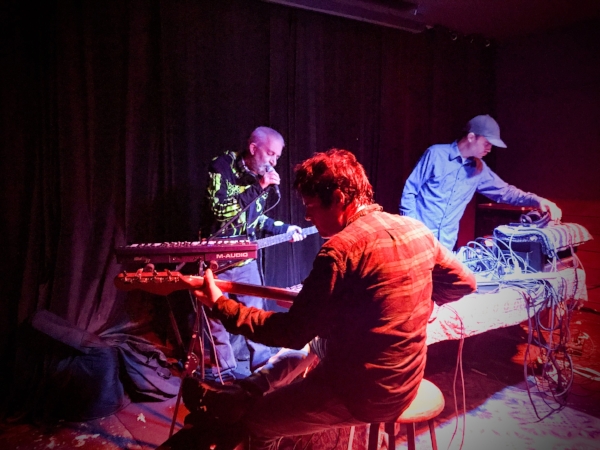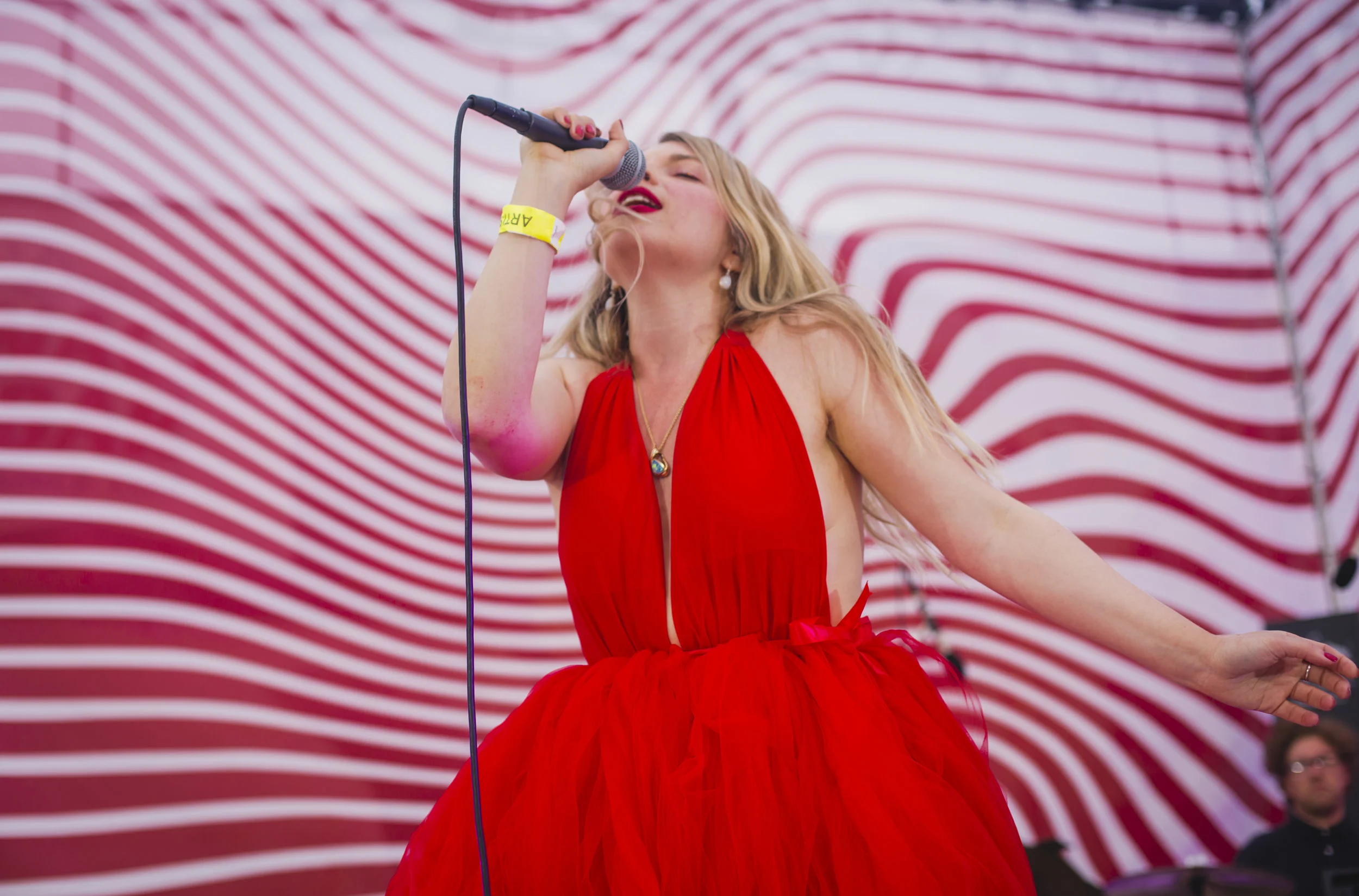Sensations' Fix: Franco Falsini on Collaborating with Ariel Pink, the Fate of the Cold Nose Movie, and More
Franco Falsini has been recording and performing music under his own name and the Sensations' Fix brand since the 1970s. For decades now, the Florentine globe-trotter's select audience has been a fervent one, and albums like Fragments of Light and Naso Freddo enjoy a cult following into the present day. We were fortunate enough to catch both of Franco's Southern California Sensations' Fix shows with Ariel Pink and Professor Cantaloupe in June of 2017, and he generously spoke with us on the two memorable occasions.
Bobby Weirdo: It's fantastic seeing you again, Franco. Your show at HM157 the other night was great.
Franco Falsini: You liked it?
BW: I did! I had a wonderful time, and the environment there was perfect for your music.
FF: HM157 is nice.
BW: So you have the San Diego show here tonight, you had the L.A. show, and you were on the KXLU radio show Glossolalia with Professor Cantaloupe…
FF: Yes - with Don [Bolles].
BW: Will you be doing any more shows during this visit?
FF: No, I’m leaving Monday. I just had eleven days here this time.
BW: On the poster for tonight’s show, it reads that you’re playing “The Lutalica Sessions”. What is that?
FF: That’s what I call the sessions I’ve been doing with Ariel. When we get together, it’s not like we’ve been practicing. There’s no such thing as practice [with us]. It’s an experience, and I’m recording everything. I gave a name to these sessions - “Lutalica” - which means something that doesn’t fit into any category.
BB: So you were recording at the HM157 show?
FF: Yes, and we’ve been recording whenever we play together. Yesterday we played at home, and we recorded. We’re not recording 100 percent [of the time], but we are recording about 70 percent. When I get back home, I’m going to have a lot to edit. We’re recording tonight, too.
BW: And will these recordings turn into an album?
FF: We don’t know. I’m also just trying to document. If I try something, I want to know what I’m getting back. If I listen to the music and it sounds OK, then maybe I’m doing the right things and I should develop them. Sometimes you do things and you listen back, and you might not like it.
This is how it was when we started out as kids. We would take acid and the fun thing was to record everything together on a 4-track, and then listen to it. There would be certain things we would like, and certain things we wouldn’t like. We were measuring ourselves. So it’s the same thing even if you’re not taking acid – it’s an experience.
This thing with Ariel is creating with a feeling of comfort. We can say things to each other, and we’re not scared or shy. I feel open with him – at ease.
BW: How did the two of you first get together?
FF: The first time I met Ariel was when I came to visit Regal Degal and Josh da Costa. I was coming from San Francisco, they picked me up, and then we met Ariel right away when we went to eat at a Mexican place. From there on, when we could, we got together.
BW: You make an appearance on the Puro Instinct album Autodrama.
FF: At the same time that I met Ariel, I met Piper. Piper was coming out of the house with her stuff, and she showed me the music she’d just recorded. I liked it right away. One time, she got me involved recording at Ale Cohen’s studio.
BW: Does the movie that Cold Nose accompanies really exist, or is it just a fiction?
FF: It did. It was a 30-minute movie. The guy who is credited as producing it, Filippo Milani, wasn’t doing anything musically. He was a well-known fashion photographer, but his dream was to make a movie. It was a half-hour film about a guy who snorted coke.
BW: Have you seen the movie?
FF: I’ve seen the movie. What happened is that we did the music, and it was shown to Polydor. They liked the music. They liked the film too, but it was only thirty minutes. Back then especially, there was no outlet for something that short. Polydor made the album, but the film has [since] been destroyed.
The thing was that the coke was actually a real thing, and people who had gotten involved with the movie were also involved with coke, and started to freak out. The main producer burned the whole thing. It was done on 18 mm film. One day there was a fight, and he literally burned the film to show someone that he was the boss.
BW: You had music that was used as incidental music on radio. How did that happen?
FF: The very first album I did for Polydor was not a commercial album. They pressed two or three hundred for radio stations, who would play it, and then publishing money would be made before the next album was released.
BW: But you didn’t write that first album to be used like that -- as incidental music for radio stations, right?
FF: Right. It was just the demo I took to Polydor.
BW: You’ve performed under the name Paolo Uccello, correct?
FF: That happened when my wife and I moved back to Italy from Virginia. We had been living in what was basically a hippie commune in Arlington, but decided it would be better for us to go back to Italy.
There was a group of architects who were opening a super cool venue and had helped me getting equipment, going through customs, and then finding places for me to play. They came up with the idea of me using the painter’s name Paolo Uccello. It was funny, because people would call me Paolo, and I wouldn’t reply. They would think I was ignoring them, but I just couldn’t get used to it! [laughs]
BW: When you were young, your sister was living in England and she would send records back to you in Italy. Do you remember which records she sent?
FF: Yeah! Spencer Davis... The Walker Brothers [sings "The Sun Ain't Gonna Shine (Anymore)"].
BW: And these were 45s?
FF: A lot of them – most of them – were 45s.
BW: Finally, all of the music you were recording back in the 70s was home-recorded, right?
FF: Yes, all home-recorded. Everything I do – even now – is home-recorded. It’s just that it’s digital. Now there’s no TEAC, but there’s Ableton.








